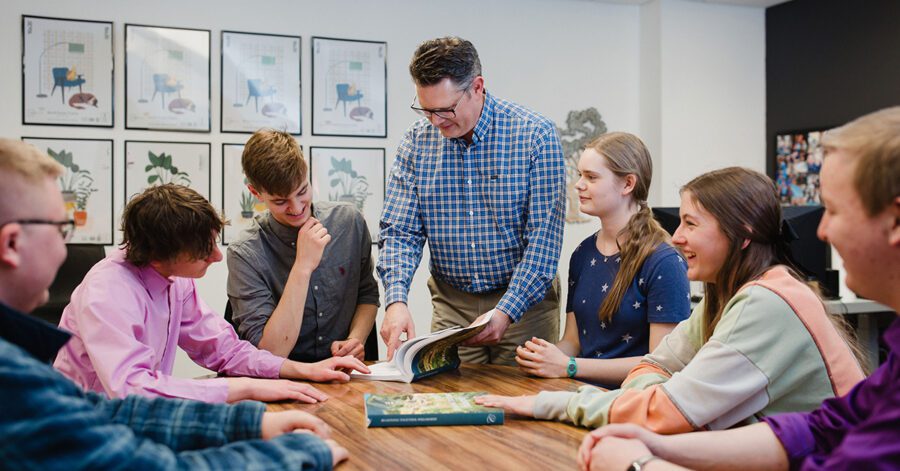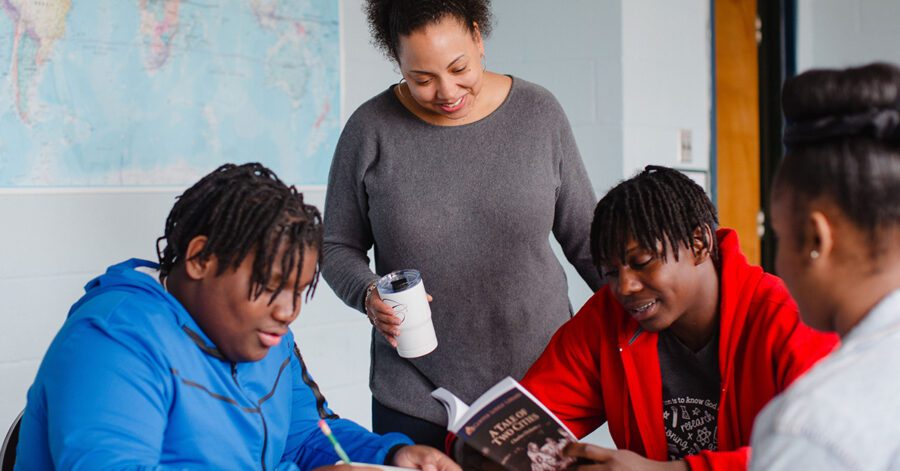I believe there is no greater feeling of wholeness than the feeling of belonging. We can truly thrive when we find a community in which we can be ourselves and know that we will be loved.
Charlie Brown’s Christmas tree provides a metaphor for us: Linus saw Charlie Brown’s bent-over Christmas tree and realized that all it needed was a little love. With Linus’s blanket around it, the tree had the support it needed to stand up straight. With the help of friends, the tree would become beautiful. In one way or another, we are all broken and straining at life. The community of Christian faith is designed to help us overcome the hardships and hurts, so that we can thrive.
Imagine a fellowship where people are genuinely glad to see you, where you can let down your guard, where you can truly be yourself and find yourself. Imagine a group of people who have your back, but will get in your face and tell you the hard truths you need to hear. This is what the Lord wants for His church, His body. We all work together, each person fulfilling his or her unique role, and we build up one another in the process. We give special love to the parts of the body that need more attention.
Sometimes we are the sad little tree. Sometimes we are part of the encouraging crowd, helping a brother or sister become what God intends.
Surely everyone would like to be part of such a community. However, such communities are far too rare. Of course our imperfections sabotage meaningful, constructive relationships. People are selfish, proud, and greedy. Our sinful nature stands in the way of creating and maintaining this kind of fellowship. We need divine assistance.
As believers live in the power of the Holy Spirit, we can work for genuine connectedness with our friends. It takes the work of God himself to achieve true Christian fellowship; we cannot attain it by our own power. The foundation of real fellowship among believers, then, is fellowship with God through prayer and the scriptures.
So, if we really want to experience deeper, stronger community, what can we do?
Forgive.
There would be no spiritual life for anyone without forgiveness. It is the foundation of our relationship with God. Only through the death and resurrection of Christ can we live. We must continually receive the forgiveness of God, and freely offer forgiveness to those who sin against us. Love covers a multitude of sins.
Forgiving has to be a regular habit for us.
Work hard at being real.
God constantly reveals to us our identity in Christ. He reminds us of our sinless perfection which was purchased for us on the cross. He also shows us our unique character as His special workmanship (Ephesians 2:10). God wants us to become more and more what He created us to be.
We need to stop pretending. Typically, we want people to think we are better than we are. Sadly, if people come to like us when we pretend, then they develop a bond with a fake person. Even if we win (getting people to like us), we lose because we cannot be authentic.
In community, our friends can help us recognize the things that inspire us, encourage us and intrigue us. They affirm us as we operate out of our strengths. They help us discover our true selves.
Communicate with each other on the basis of truth.
We need to speak the truth in love, even when it is difficult. When I am acting like a jerk, I need loving people in my life to correct me. Similarly, when I see a friend making poor choices, I need the courage to speak up.
A friend recently pulled me aside to ask me about something I said. He had overheard me speaking of a mutual friend who was not present, and it sounded like I was being critical. I admired his courage for addressing me privately, sharing his concern. It turned out that my statements had not been critical, but our friendship deepened because he was willing to confront me.
Commit to work things out.
When we are truly committed to biblical community, then we have the freedom to speak the truth in love, knowing that the other party will listen and work for reconciliation.
Too often we walk away from problems rather than dealing with them. The difficult conversations never happen and relationships suffer. Usually both parties miss the opportunity to grow and fellowship becomes more and more shallow.
Let people help you.
I find that most people are very willing to help others, but balk at receiving help. We cannot give assistance if no one will receive it. So, receiving help is a vital part of building community. It develops our sense of connection and allows us to share in each other’s stories. It makes life more fun when we bear each other’s burdens.
A friend recently turned down my wife’s and my offer to help her move into a new apartment. On the day after her move, we happened to have a conversation about the value of giving and receiving help. Tired and sore from the heavy lifting, she admitted that she probably could have used a few extra hands. More importantly, she saw the value of receiving help in building a spirit of fellowship.
Love others when they are hard to love.
We all go through times of discouragement and confusion. Often we cannot think clearly and we make poor choices. During these times, we really need each other. We need others to help us interpret reality and understand our circumstances. We may become angry or withdrawn. Real friends stick with us in such times, help us laugh, and remind us that we have what it takes to persevere.
Real community is very countercultural. We rarely see it in our world today. It is messy. Our feelings get hurt. We help when it is not convenient. We become vulnerable. Our secrets come out. We get to be real. We do not have to hide. We have nothing to hide. We become what God intends us to be. We grow more in the image of Christ. We experience genuine sorrows and joys. We live life on a deeper level.
God knows that we need each other. And He knows that we need His help to make it work. It is tough, painful work to develop true community, but in this community, we can truly live!




